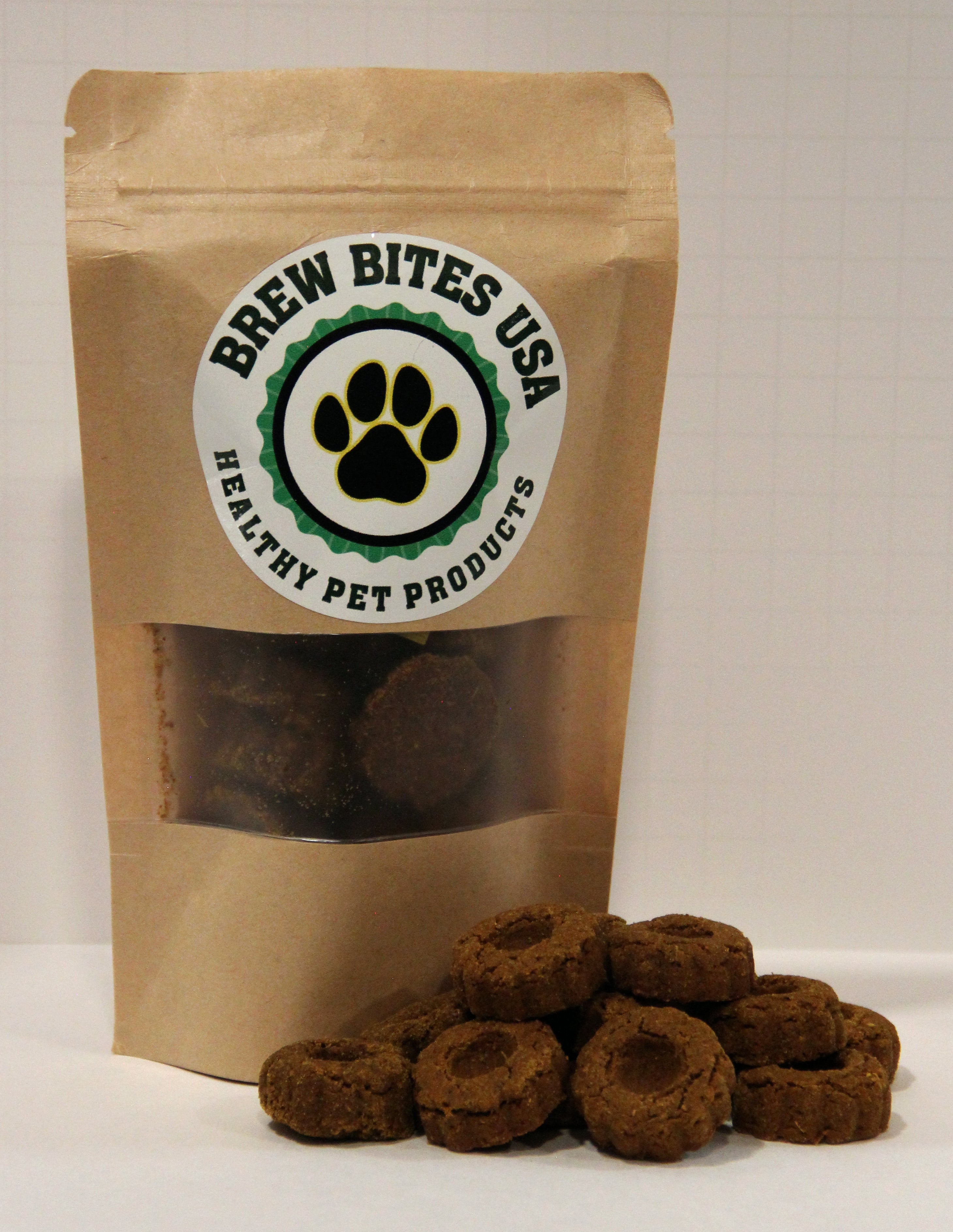FAQs
The Food and Drug Administration has not assessed the claims made about these products, and their effectiveness lacks confirmation through FDA-approved research. These products do not aim to diagnose, treat, cure, or prevent any illness. The information provided here should not be seen as a replacement for advice from healthcare professionals. Before using any product, it is advisable to consult with your healthcare provider regarding potential interactions or complications. Proudly made in the USA, our products are derived from hemp and contain less than 0.3% THC. Please be aware that certain state restrictions may apply. For more details, refer to the Terms and Conditions and check local regulations for compliance with applicable laws.
Although we use spent brewery grain, there are no hops in our dog treats.
We use broad-spectrum CBD which has zero to trace amounts of THC. Although we cannot say for absolute certainty (like a NA beer label) there is no THC, the trace amounts are highly unlikely to affect your pet.
While certain herbs are commonly used to address dog ailments, their efficacy remains unproven due to limited scientific research. It's essential to exercise caution when considering herbal remedies for your canine companions and consult with a veterinarian for evidence-based guidance on your pet's health and well-being.
Spent brewery grain, often referred to as "brewer's grain," is a byproduct of the beer-making process. It primarily consists of the malted barley or other grains used in brewing, which have undergone mashing and lautering to extract sugars and flavors. Once these essential components are extracted, what remains is the spent grain.
It's important to note that spent brewery grain does not include hops. Hops are another crucial ingredient in brewing, responsible for imparting bitterness, flavor, and aroma to the beer. Hops are typically added to the boiling wort during the brewing process and are not part of the grain bill. Therefore, spent brewery grain primarily consists of the solid remnants of the malted grains, which have been thoroughly soaked and drained to extract their sugars and flavors, leaving behind fiber-rich, protein-laden grains.
Spent brewery grain is not wasted; instead, it is often repurposed as animal feed, particularly for livestock and pets, due to its nutritional value. Its high fiber content can provide a valuable source of nutrients for animals, making it an eco-friendly and sustainable way to utilize the byproducts of the brewing industry.
How Much Pet CBD Should You Give Your Dog or Cat?
Finding the right amount of pet CBD to give your dog or cat can be tricky, but it's crucial to ensure their safety and well-being. Pet CBD has gained popularity for its potential health benefits, from reducing anxiety to alleviating pain, but determining the correct dosage is essential for achieving the desired effects.
Importance of Correct Pet CBD Dosage
When it comes to pet CBD, one size does not fit all. The right dosage depends on several factors, including your pet's size, weight, and the specific condition you're aiming to treat. Starting with the correct amount of pet CBD is important to avoid any adverse reactions and to ensure your pet reaps the benefits safely.
Dosage Guidelines for Dogs and Cats
For both dogs and cats, it's generally recommended to start with a low dose and gradually increase it if necessary. Here's a basic guideline to help you get started:
- Small dogs and cats (under 20 pounds): Start with 1-2 mg of pet CBD per 10 pounds of body weight.
- Medium dogs (20-50 pounds): Start with 2-4 mg of pet CBD per 10 pounds of body weight.
- Large dogs (over 50 pounds): Start with 4-6 mg of pet CBD per 10 pounds of body weight.
These are just starting points. Every pet is unique, so closely monitor your pet's response to the initial dosage. Adjust the amount if needed, but do so gradually.
Tips for Administering Pet CBD Safely
- Consult your veterinarian: Always talk to your vet before starting your pet on a new supplement. They can provide guidance on the right dosage and check for any potential interactions with other medications.
- Choose high-quality products: Look for pet CBD products that are lab-tested for purity and potency. This ensures you're giving your pet a safe and effective product.
- Monitor your pet: Keep an eye on your pet for any changes in behavior or health. If you notice any adverse effects, reduce the dosage or discontinue use and consult your vet.
In conclusion, finding the correct amount of pet CBD to give your dog or cat involves starting with a low dose and gradually adjusting it based on their response. By consulting your vet and choosing high-quality products, you can safely incorporate pet CBD into your furry friend's wellness routine.


